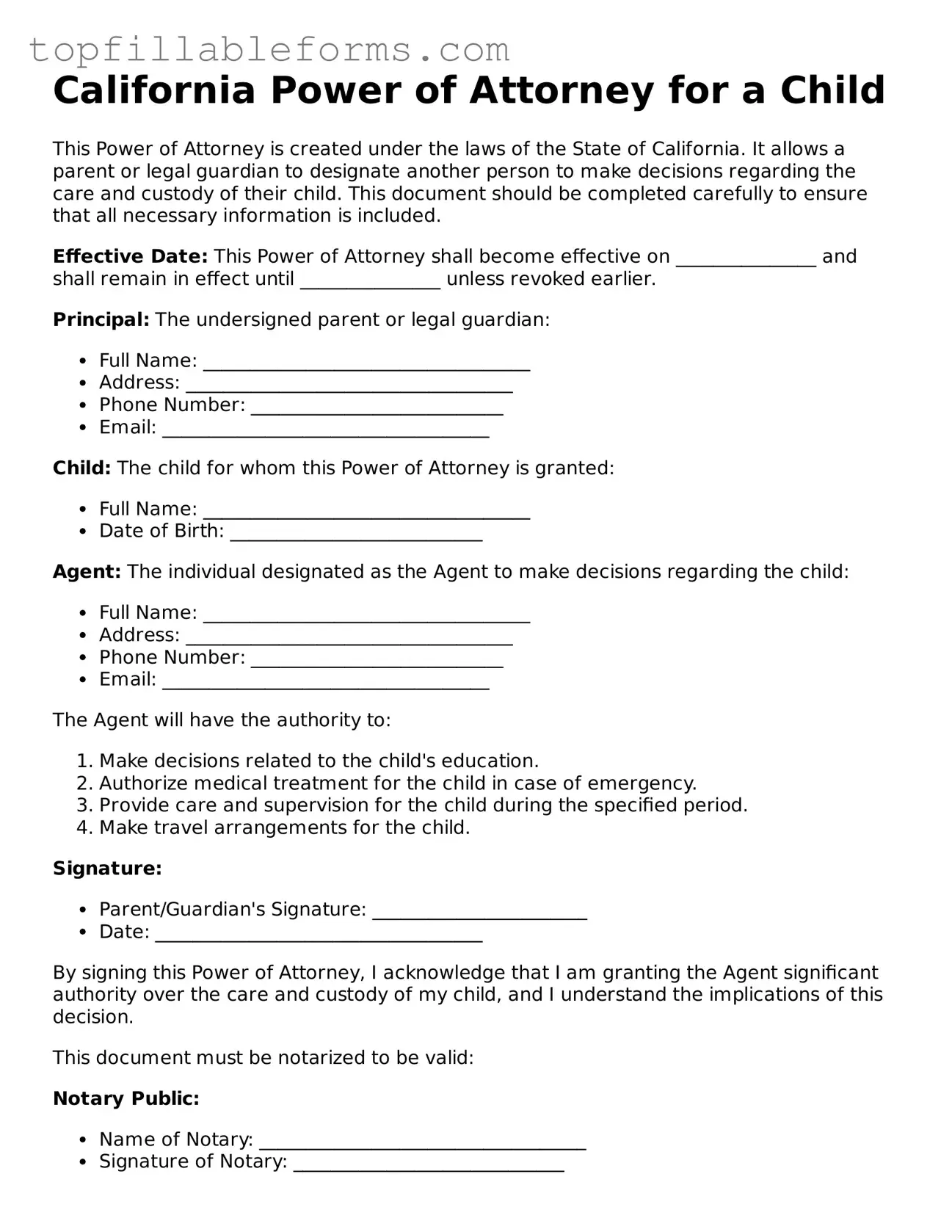Attorney-Verified Power of Attorney for a Child Template for California
The California Power of Attorney for a Child form is a legal document that allows a parent or legal guardian to delegate their authority to another adult, enabling that person to make decisions on behalf of a child. This form is particularly useful in situations where parents may be temporarily unavailable, such as during travel or medical emergencies. Understanding this document can help ensure that a child's needs are met, even in the absence of their primary caregivers.
Open Power of Attorney for a Child Editor Here

Attorney-Verified Power of Attorney for a Child Template for California
Open Power of Attorney for a Child Editor Here
Finish the form now and be done
Finish your Power of Attorney for a Child online by editing, saving, and downloading fast.
Open Power of Attorney for a Child Editor Here
or
▼ PDF File
